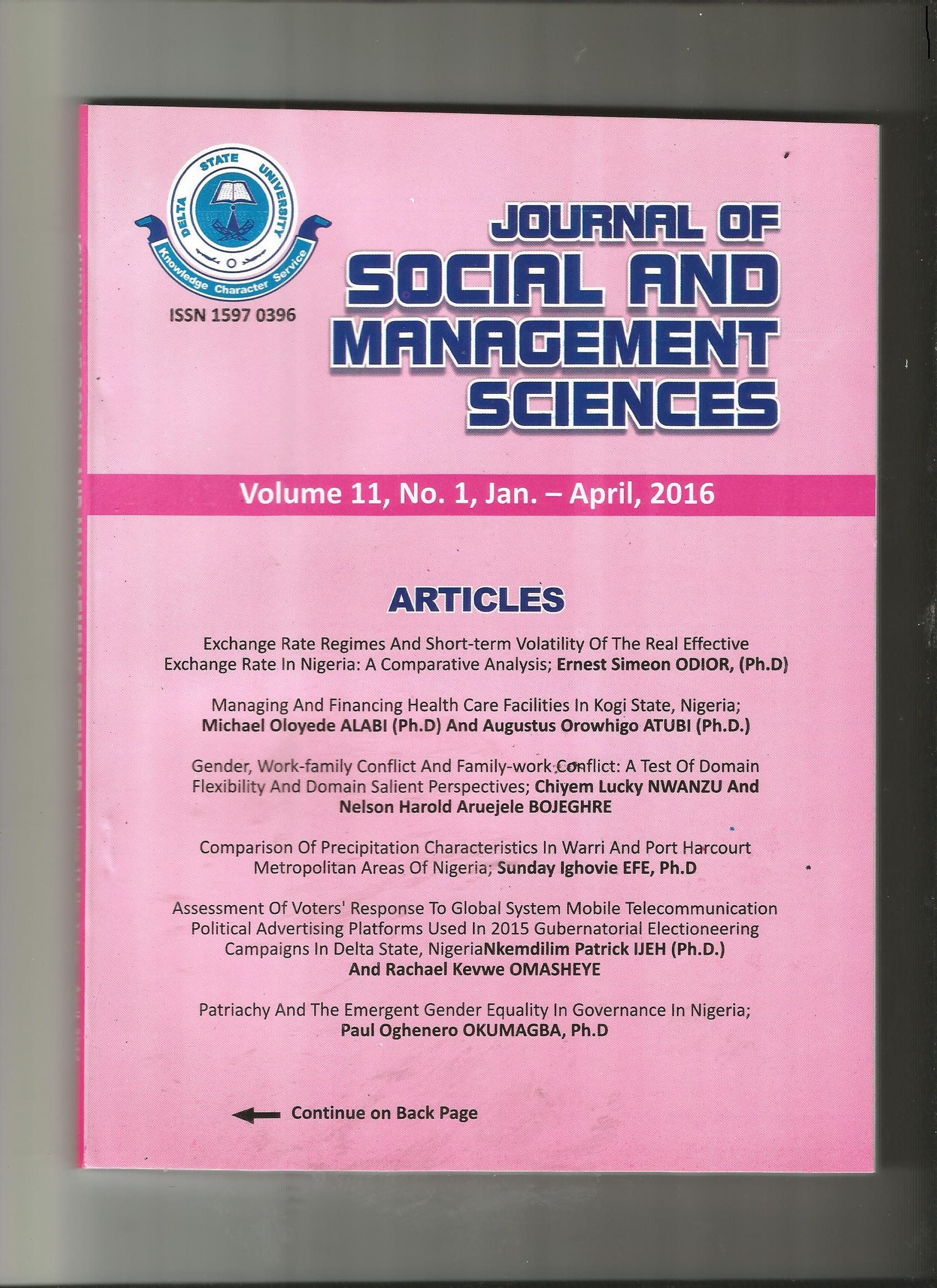
JOURNAL OF SOCIAL AND MANAGEMENT SCIENCES
Journal of the Faculty of Social Sciences, Delta State University, Abraka, Nigeria
ISSN: 1597-0396
DOI: 10.5987/UJ-JSMS
Email: jsms@universityjournals.org
QUALITY OF LIFE OF FEMALE PUBLIC SERVICE RETIREES IN A NIGERIAN SETTING
DOI: 10.5987/UJ-JSMS.16.026.1 | Article Number: AC84D07 | Vol.11 (1) - April 2016
Authors: OGEGE Sam Omadjohwoefe and EJECHI Eucharia Onyeama
Keywords: Nigeria, Female retirees, Quality of life
The study was undertaken to ascertain the status of the quality of life (QoL) of female public service retirees and the associated factors in a Nigerian setting given the complaints of irregular or non-payment of pension income. Structured questionnaire containing validated scales for QoL domains (physical health, life satisfaction, subjective happiness, psychological wellbeing, cognitive wellbeing) was used to obtain information from 560 retirees. By overall assessment, prevalence of unsatisfactory QoL was 51.1% while it varied from 42.5 to 68.7% by background socio-demographic variables. Prevalence of arthritis and hypertension was high and markedly greater than other diseases (51.8-64.6 vs. 10.5-32.0%). Further analysis by QoL domains revealed a high prevalence of unsatisfactory physical health (60.2%), but the divide between “unsatisfactory” and “satisfactory” in other domains was marginal (49.3-55.4 vs. 44.6- 50.7). Logistic regression indicated that the odds of satisfactory QoL was significantly associated (P<0.05) with respondents having secondary and post-secondary education, living with spouse, economic satisfaction and former employment in health care institutions, but declined with increasing age and years in retirement. Prevalence of regular pension income, financial support from children, extended family members and friends was 26.4-66.3, 45.8-49.2, 6.0-11.1, 2.6-7.2%, respectively while it was 29.8% for income from private businesses and contract employment. It is concluded that poor QoL and a weak family support that suggested a weakening African family tradition was highly prevalent among the female retirees.
